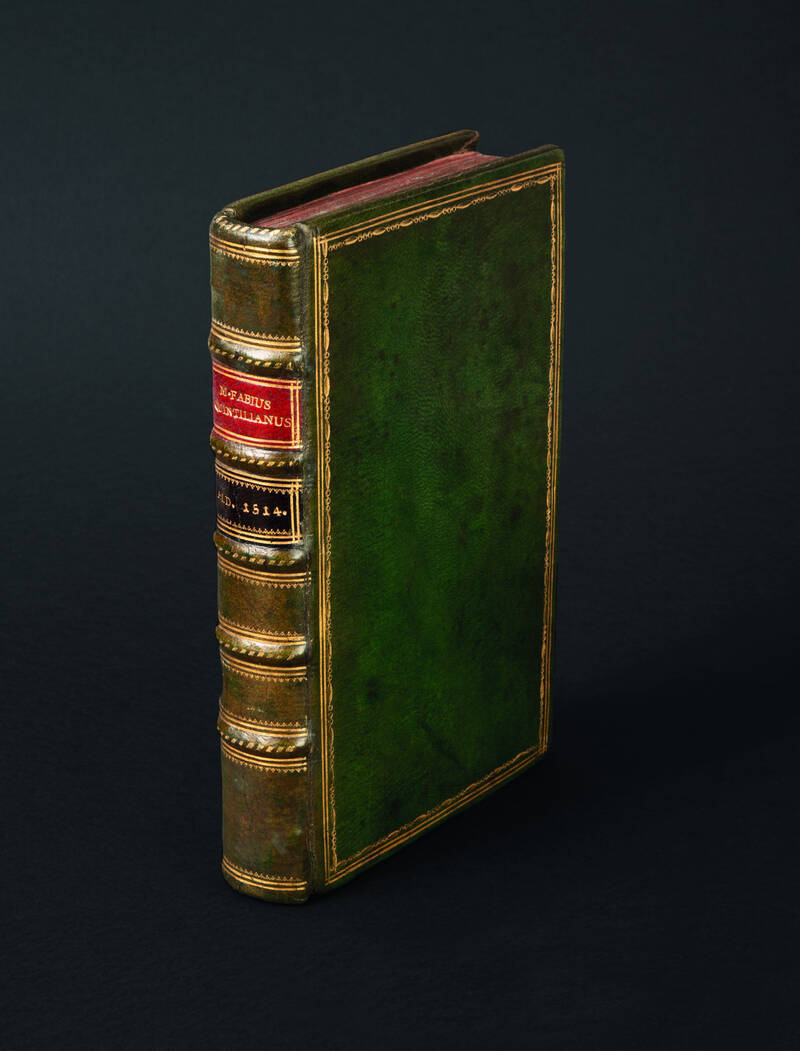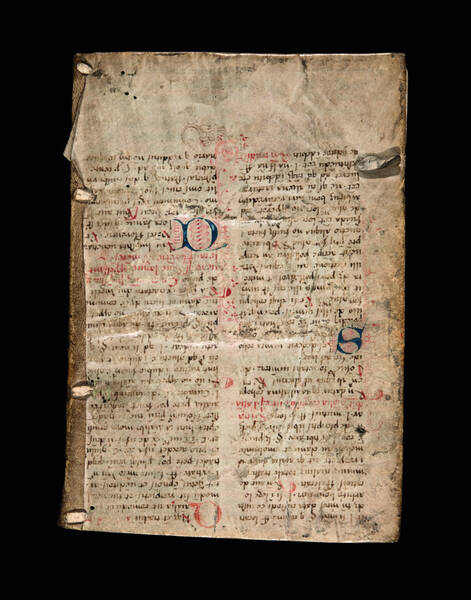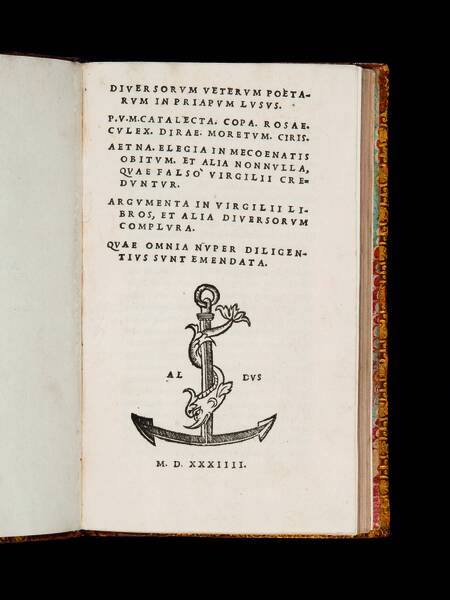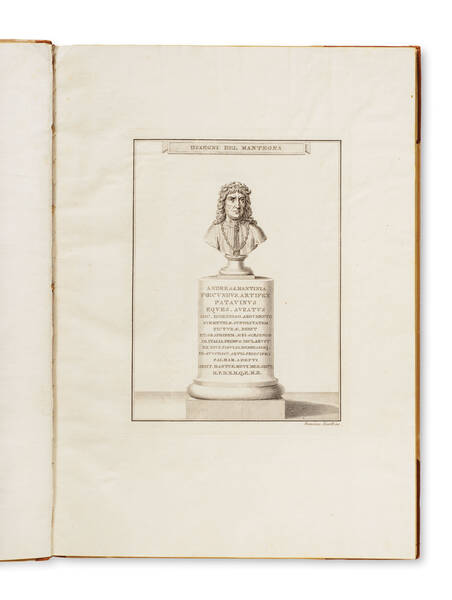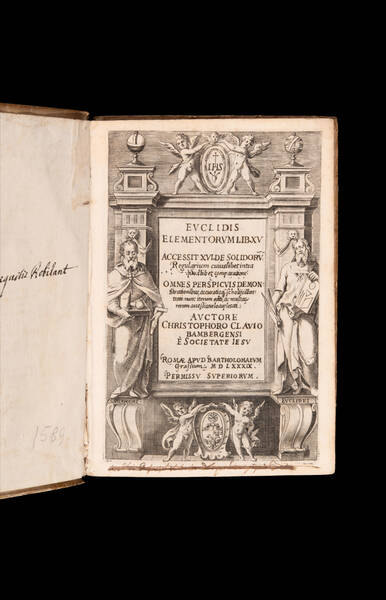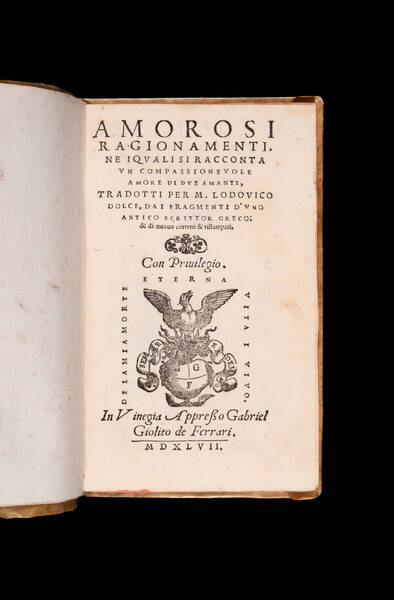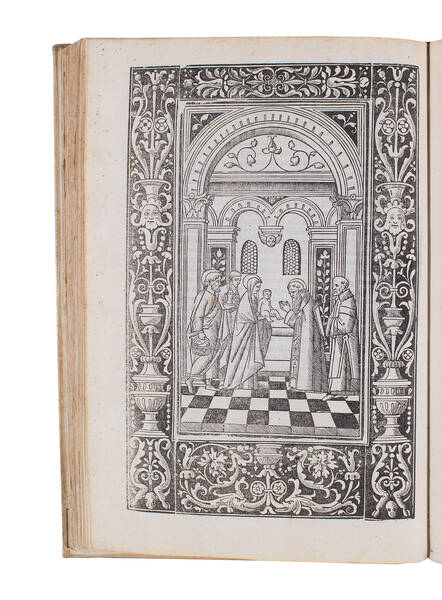QUINTILIANUS, Marcus Fabius. M. F. Quintilianus.
Venice, in aedibus Aldi, et Andreae soceri., mense Augusto 1514Quarto (214 x 136 mm.), [4], 230 leaves with Aldus' device on title page and on verso of last page. Title slightly dust soiled, two small worm holes in the upper white margin of the first tree leaves but a very fine copy in eighteenth century green morocco, panels with triple gilt border, spine in compartments with red and green morocco lettering pieces.
First Aldine edition of Quintilian's comprehensive treatise on rhetoric and the education of an orator. Published only a few months before Aldus Manutius' (1450-1515) death, this edition of Quintilian is one of his last printed works and the only edition of this title printed by Aldus. It was reprinted in 1521 by his heirs.
The volume is prefaced by a dedicatory letter written by Aldus in praise of Giovanni Battista Ramusio (1485-1557), a geographer and learned man who had helped him obtain ancient manuscripts for his publications, including the one for this Quintilian. Ramusio worked in partnership with the humanist Andrea Navagero (1483–1529) to edit this volume, working in great haste and under pressure according to Aldus' letter.
De Institutiones Oratoriae exerted a high degree of influence on school curricula and in the development of pedagogy in Europe from Late Antiquity, through to the Middle Ages and the Renaissance. The work was read by authors such as John of Salisbury, Alexander Neckham and Petrarch, despite the survival of only fragments from the first five books and the last four books until the rediscovery of the complete text in 1416 by Poggio Bracchiolini in the library of the Benedictine Abbey of St. Gall in Switzerland. This discovery and the subsequent first publication of the complete work in 1470 marked a spike in scholarly interest and in-depth study of the work, as well as a growing influence of the work on society. Aldus' edition, printed 34 years later, in Italic type and quarto format, stands out as one of the few smaller format publications, more affordable than the common folio editions that became popular in the sixteenth century.
Marcus Fabius Quintilianus (ca. 35 - ca. 100 CE) was a Roman lawyer and educator originally from Spain. He was sent to Rome to study grammar and rhetoric under Remmius Palemon and Domitius Afer, and after 68 CE began practicing as an advocate in the court of law, as well as establishing a school of oratory. For over twenty years he dedicated himself to the teaching of rhetoric, counting among his students Pliny the Younger and Emperor Domitian's heirs. De Institutiones was written during the last years of his life and remains his greatest legacy, encapsulating a wide breadth of the knowledge, history and culture surrounding the art of Roman rhetoric.
Drawing from his experience as a teacher, the first volumes of the work delineate the ideal educational path of an orator from their infancy to the development of later pedagogy, emphasizing the nurture of a student's natural talents. The central chapters delve into the technical canons in the art of rhetoric, including inventio, dispositio, elocutio, memoria, and pronuntitio. The work culminates in the twelfth chapter with an analysis of the character of the ideal orator, adding a layer of moral value to the practice of rhetoric.
The Quintilian is also notorious for deviating from the usual contemporary employment of silver Latin in favour of a clear and direct way of speaking.
De Institutiones is a comprehensive treatise on the art of oratory that goes beyond an educator's manual to encompass a larger philosophy of rhetoric that became highly influential for more than a millennium after its writing.
USTC 851765; EDIT16 CNCE 54150; Renouard p.68,5; Brunet IV, 1024; Ahmanson-Murphy 124; Adams, Q52; BM STC Italian p. 546; Isaac 12840; Schweiger II, 842.
Other Books
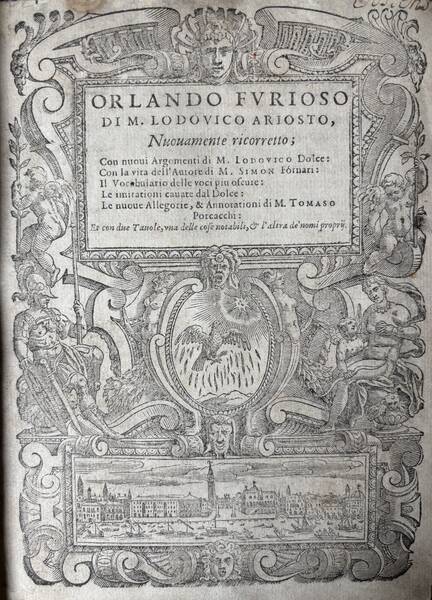
ARIOSTO, Ludovico
Orlando Furioso di M. Lodovico Ariosto, nuovamente ricorretto; con nuovi argomenti di M. Lodovico Dolce: con la vita dell'autore di M. Simon Fornari:...
€ 3.000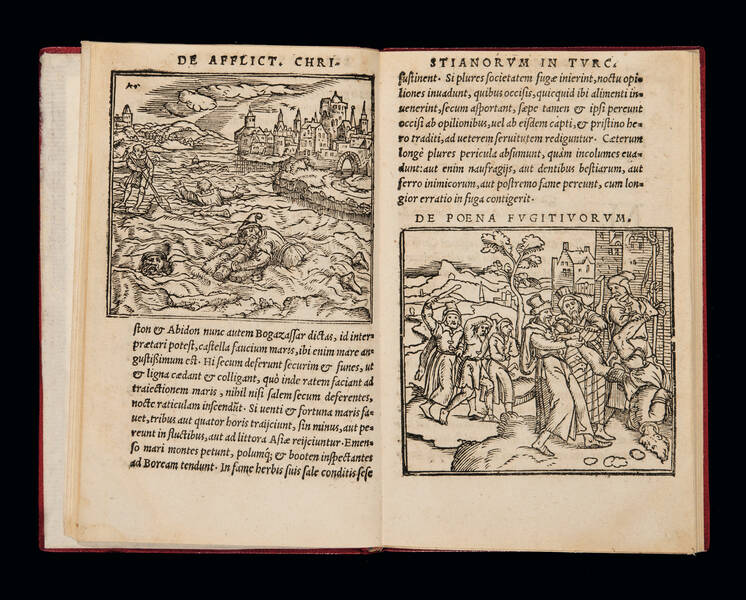
GEORGEVIC, Bartolomej
De afflictione, tam captivorum quam etiam sub Turcae tributo viventium christianorum.
SOLD OUT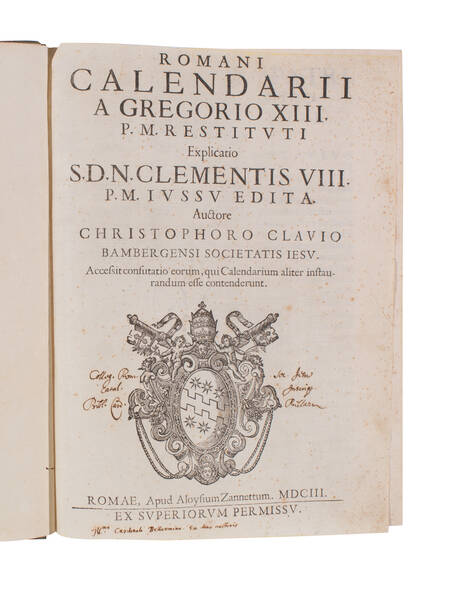
CLAVIUS, Christoph
Romani calendarii a Gregorio XIII. P.M. restituti Explicatio S.D.N. Clementis VIII. P.M. iussu edita.
SOLD OUT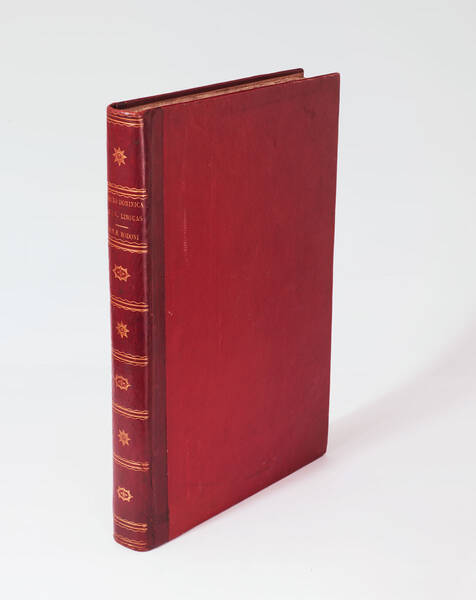
[BODONI]
Oratio Dominica in CLV linguas versa et exoticis characteribus plerumque expressa.
SOLD OUT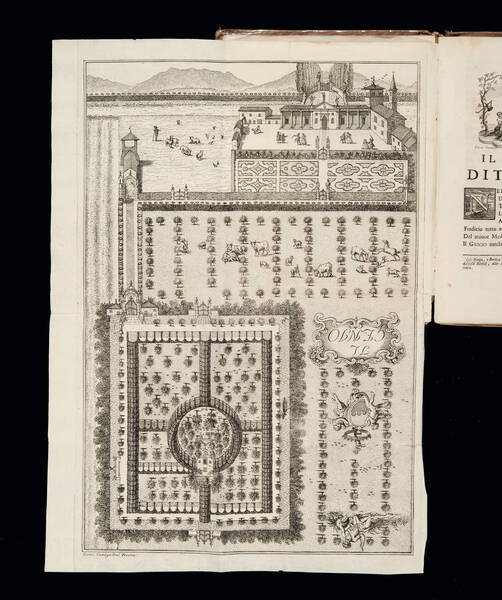
ACANTI, Aureliano (CANATI, Valeriano)
Il Roccolo ditirambo di Valeriano Acanti Acc. Olimpico Vicentino.
€ 5.000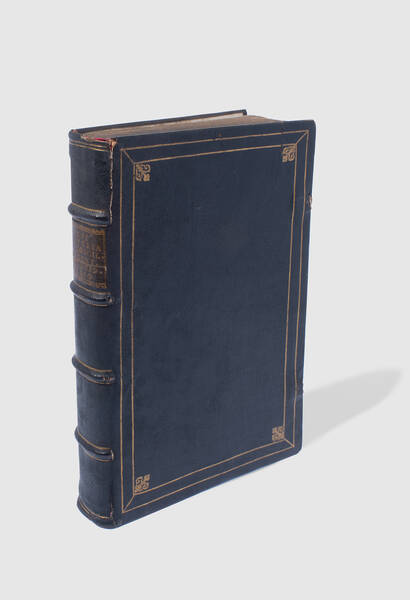
SARPI, Paolo
Historia del concilio tridentino di Pietro Soave Polano. Nella quale si scoprono tutti gl'artificii della Corte di Roma, per impedire che né la...
SOLD OUT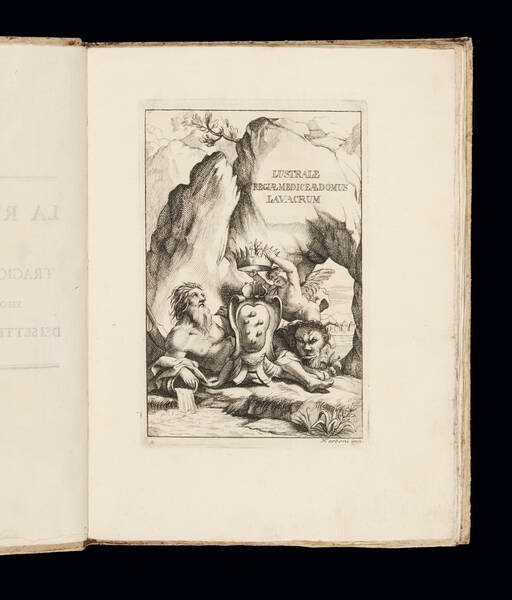
CATANI, Francesco Saverino
La reale medicide, esponente nella morte di Don Garzia i fatti più speciali di Cosimo Duca II. di Firenze ... Tragica festa teatrale, illustrata di...
€ 3.000![Azhār al-afkār fī ğawāhir al-ahğār by Ahmad ibn Yūsuf al-Tīfāšī […]Fior di pensieri sulle pietre preziose di Ahmed Teifascite, opera stampata nel suooriginale arabo, colla traduzione italiana appresso, e diverse note di AntonioRaineri Azhār al-afkār fī ğawāhir al-ahğār by Ahmad ibn Yūsuf al-Tīfāšī […]Fior di pensieri sulle pietre preziose di Ahmed Teifascite, opera stampata nel suooriginale arabo, colla traduzione italiana appresso, e diverse note di AntonioRaineri](https://www.medariquier.com/typo3temp/pics/4baf8d2ef4.jpg)
AHAMAD IBN YUSUF, al-Tayfãsî
Azhār al-afkār fī ğawāhir al-ahğār by Ahmad ibn Yūsuf al-Tīfāšī […] Fior di pensieri sulle pietre preziose di Ahmed Teifascite, opera stampata nel...
SOLD OUT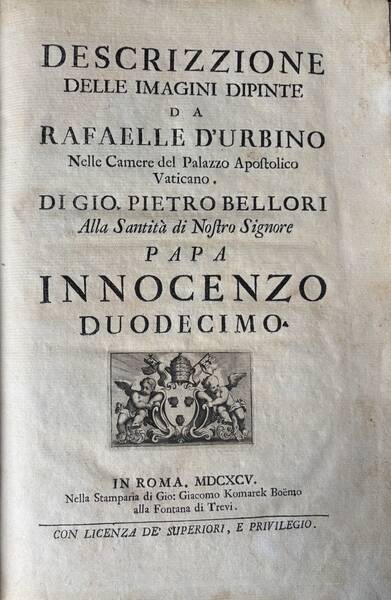
BELLORI, Giovanni Pietro
Descrizzione delle immagini dipinte da Rafaelle d'Urbino nelle camere del palazzo Apostolico Vaticano.
€ 2.500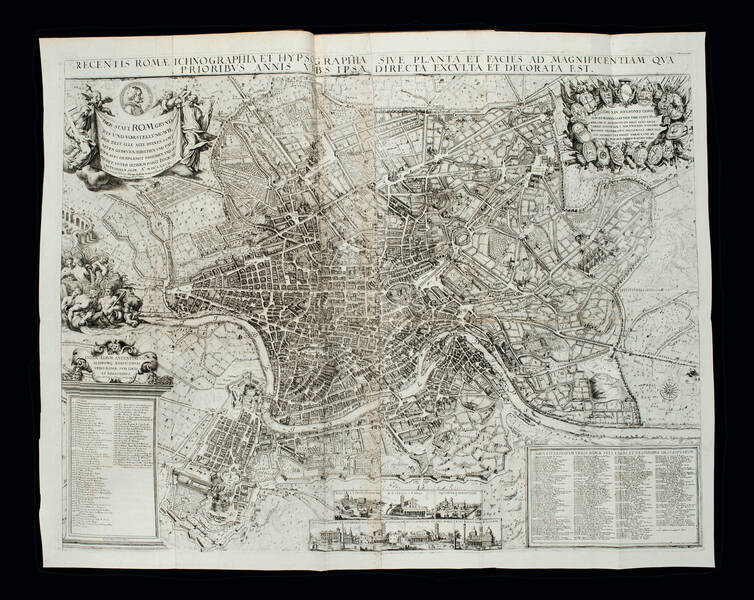
SANDRART, Joachim von
Romae antiquæ et novæ theatrum; sive, genuina ac vera urbis, juxta varios ejusdem status, delineatio topographica.
SOLD OUT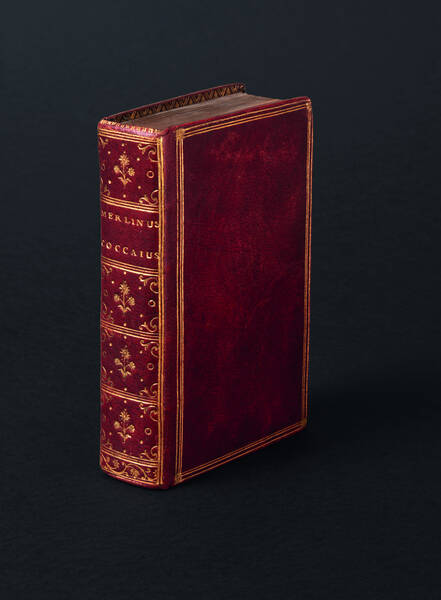
FOLENGO, Teofilo
Opus Merlini Cocaii poetae Mantuani Macaronicorum, totum in pristinam formam per me magistrum Acquarium Lodolam optime redactum in his infra notatis...
€ 11.000MEDA RIQUIER rare books ltd.
4 Bury Street St James's
SW1Y 6AB London
Phone +44 (0) 7770457377
info@medariquier.com
